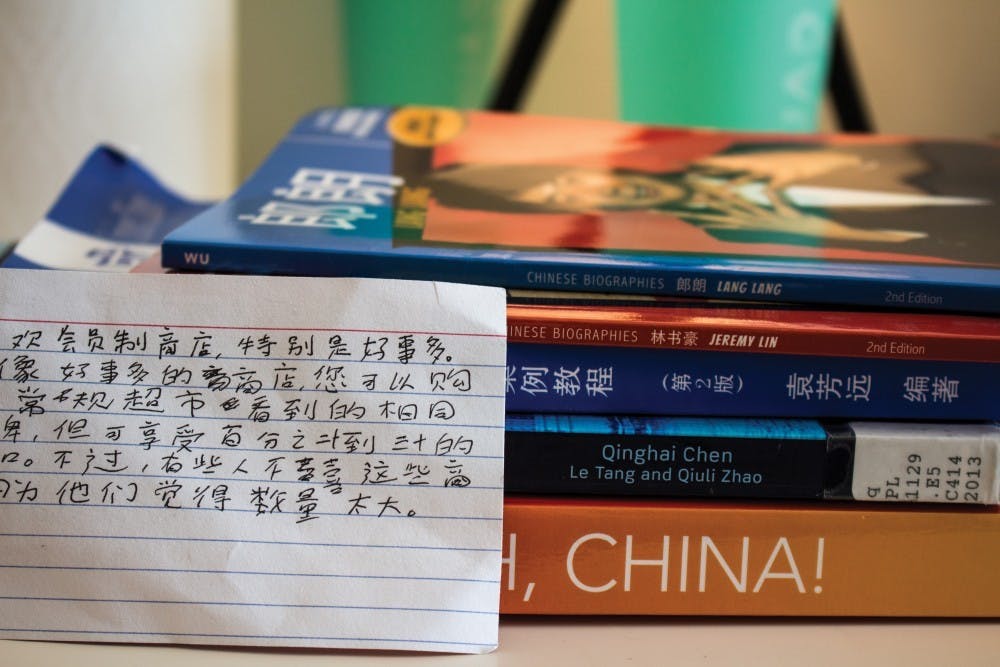
Students from China constitute the largest percentage of international students at Penn. Now, because of potential policy changes from the Trump administration, some who hail from the country say they are beginning to question their choice to study and work in the U.S.
In the past month, The Wall Street Journal and Politico have both reported that the Trump administration is considering putting an end to the decades long program which provides student and work visas to Chinese citizens in the U.S.
The potential restrictions will likely present themselves in the form of lessened quotas for student and work visas, which already pose a significant challenge to many international students. These new restrictions are said be a response to China's alleged violation of American intellectual property laws and forceful behavior with U.S. companies to transfer technology.
At Penn, where around 38 percent of the international student population is Chinese, students have begun to worry.
Wharton Freshman Connor Ling, who is a Chinese citizen, said that the direct impact these visa changes will have on his job and internship prospects are “discouraging." Ling added that while he came to Penn with the intention of remaining in the U.S. post-graduation, these federal changes have made returning to Asia a more enticing option.

College Freshman Eric Wang, also a Chinese citizen, agreed.
"It's definitely a big worry for [younger Chinese students] knowing that they'll have to go back," Wang said. "They're all planning ahead to have to work back in China."
He added that he knows several international Chinese students who are choosing to do internships in China this summer so that they can start building relationships back home, which they could then use if they had to return to China after graduation.
One such student is College Freshman Rachel Wu, who will be interning at a management consulting firm in Hong Kong this summer.
“Some of my friends have a temptation to stay in the US because after 4 years of college that’s where you have your friends and a good foundation you want to leverage,” Wu said.
Given the possible new visa regulations, Hong Kong seems like one of few places the Chinese community can get the best of both worlds, Wu feels. In Hong Kong they can experience international culture and attain jobs in large companies that recognize the value of a Penn education.
Outside Penn, Chinese students across the country are being pushed to make similar choices about their careers.
China is the largest source country for visiting scholars to universities in America. The consequences of potential restrictions are therefore adding to preexisting worries about what the already declining rate of international student enrollment will mean for large universities, especially as many of these universities have grown dependent on income generated by international students.
Chinese students added that it seems as though changing policies are send messages that transcend politics and affect their time spent in the US even just as students.
“It’s not always very comfortable working in situations where you’re the only woman of color,” Wu said. She added that her preference for Hong Kong at the moment comes from the increased comfort she feels being around people like herself.
"It’s not just about the policy, it’s more about the trend and government's attitude which makes me feel much less welcome,” Ling said. “I don’t want to be in a place I’m not welcome.”
The Daily Pennsylvanian is an independent, student-run newspaper. Please consider making a donation to support the coverage that shapes the University. Your generosity ensures a future of strong journalism at Penn.
Donate



